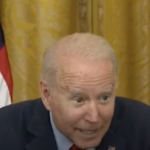Primer on Campaign Contributions
Recently I learned that 81% of all donations to our Federal elected representatives come from one twelfth of one percent (0.0012) of our voters, principally funneled through lobbyist groups. Incumbents received 99% of these lobbyist-donated funds in the last election cycle.
This may explain why 96% of incumbents won reelection in 2008 less than a month after polls showed that our Congressmen’s approval rating was only 9% after the bank (TARP) bailout on 10-3-08. Money wins elections.
A recent example illustrates how this works. Senator Barbara Boxer voted for a $5 million “earmark” (pork) for La Raza, a Latino lobbyist group pushing for amnesty for illegal aliens. She received $250,000 in donations from La Raza beneficiaries of the $5 million. In essence, congressmen and lobbyists are bribing each other with our tax dollars.
When I checked at the Federal Elections Commission website (www.fec.gov) in 2008 to see where my representative to the US House of Representatives, Heath Shuler, got his campaign donations, I was shocked to see that more than 95% came from outside our voting district from various lobbyists and fronts. So it is understandable why Shuler, who says he is conservative, voted against 50 amendments to remove pork/earmarks.
Another way is” leadership” political action committees (PAC) of Congressmen. Nancy Pelosi gave to Shuler and others campaign donations from her “Leadership” PAC. Elected representatives give to one another.
The first thing a newly elected congressman learns when he goes to Washington is that their reelection campaign donations will be taken care of by lobbyists. All they have to do is vote for certain things.
There are three basic ways our representatives help these special interest groups. They vote to appropriate funds for a specific project or group (earmarks) and get kick backs in donations. They exempt certain groups from laws passed and/or they give specific individuals contracts without putting them out for competitive bids.
Lobbyists generally get back roughly $220.00 in government benefits for each dollar they donate to candidates. So how do we stop this when their return on their investment is so high?
1) Limit government spending to providing only those government services that cannot be provided by the private sector.
2) A tax system that treats every person the same, either a flat tax or consumption tax with no exemptions.
3) The recycling of money must be cut off. The only way we can beat this system is by identifying candidates who will pledge in writing to vote against all legislation containing the recycling of money to candidates via earmarks.
4) Since we cannot win the money game, we have to start early to identify and help fiscally responsible candidates in primaries, since that is the place where outsiders have a chance. For example, in Utah, 18-Year incumbent Republican Senator Bob Bennett was denied having his name on the primary ballot by delegates that believed his voting record was too liberal.
5) Volunteer and recruit other volunteers to help get the word and vote out for candidates who are willing to pledge in writing what they will and will not vote for.
One group that requires specific answers to its 80-question questionnaire before endorsing a candidate is www.Icaucus.org, a citizen’s movement to take back the government from the big money special interest elitists running it for their own benefit.
James F. Davis is the president of Accuracy in Academia.




